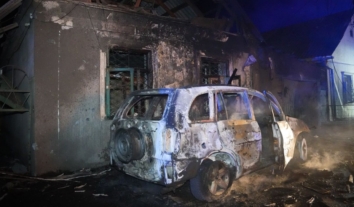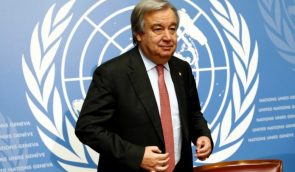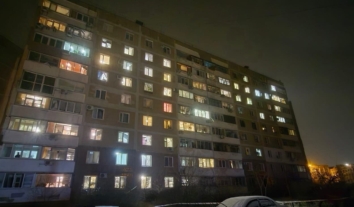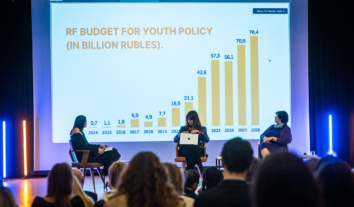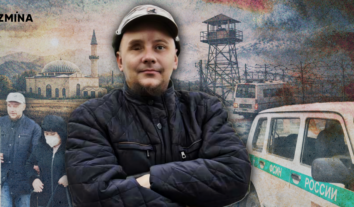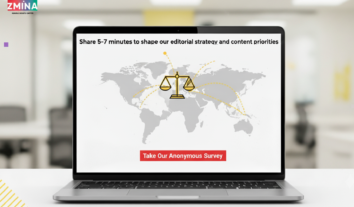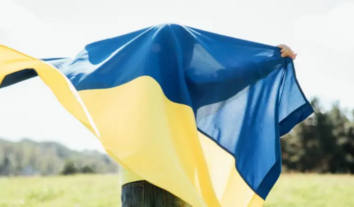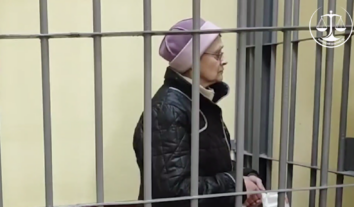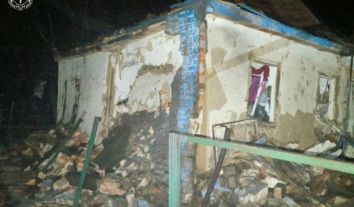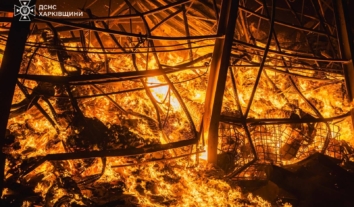“The truth makes a person free, and therefore victorious”: a documentary about the oppression of priests in occupied Melitopol was shown in Kyiv
On May 29, a special screening of the documentary film “No God But Theirs”, created by the investigative journalism team of The Kyiv Independent, took place in Kyiv. The film was produced in English for an international audience, so the Kyiv premiere included a Ukrainian translation. The event drew a large audience, with the hall overflowing, and a discussion with the creators about the film’s production and message followed the screening, as reported from ZMINA.
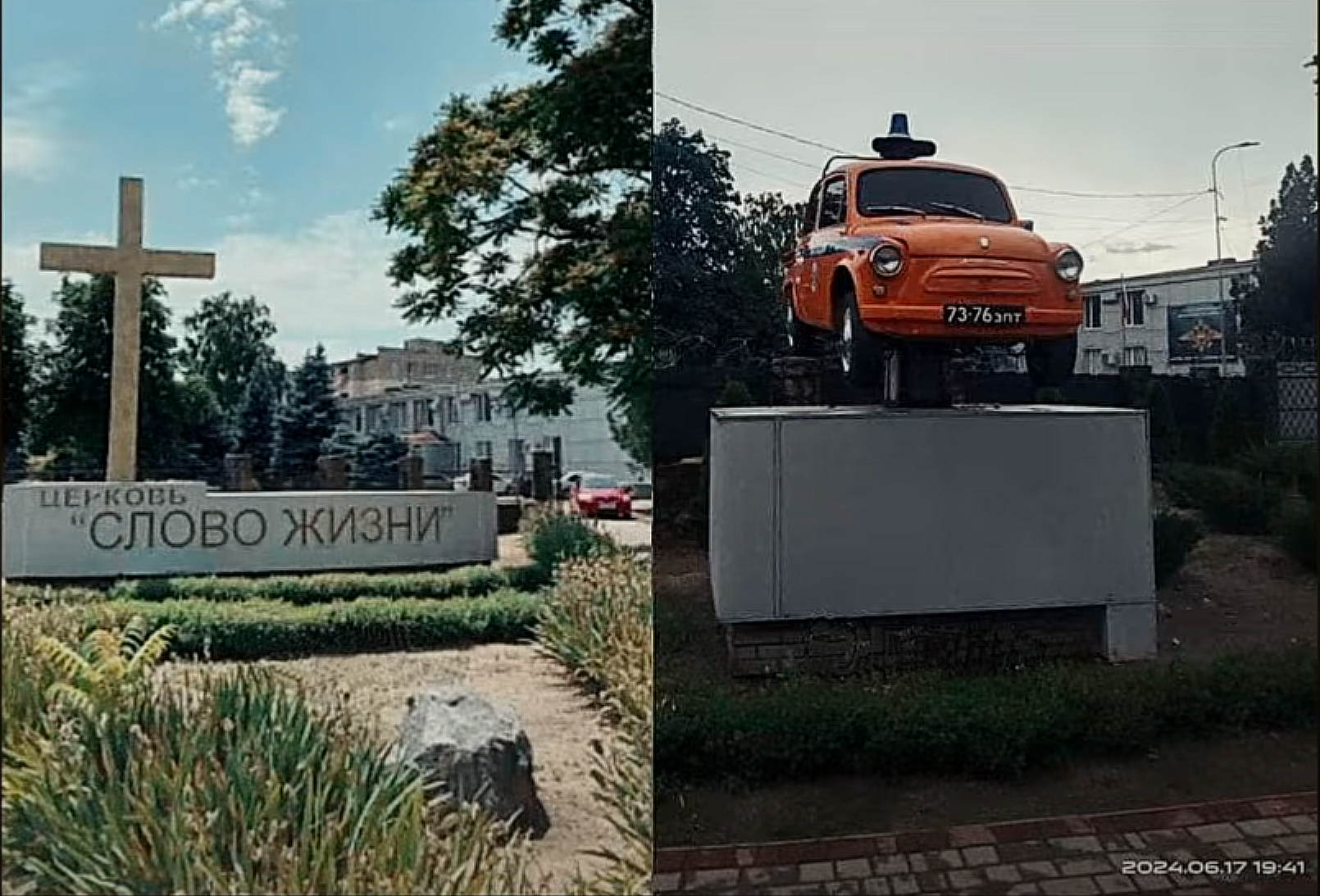 Photo: Screenshot from the film
Photo: Screenshot from the filmThe film’s central theme is the persecution of Christian communities in temporarily occupied Melitopol. The journalists shed light on the repression faced by priests, pastors, and congregants alike, particularly Protestants and Greek Catholics, through arrests, interrogations, searches, church closures, and the seizure of their property.
Many are often forced to leave the city or operate underground due to constant pressure. The film features testimonies from Pastor Dmytro Bodiu of the “Word of Life” Protestant Church, Mykhailo Britsyn of the “Blahodat” Church, Ihor Ivaschuk of the Evangelical Christian Church, and Greek Catholic Priest Oleksandr Bohomaz. All of them recount the realities of religious life under occupation.
“In the morning, a small ‘army’ arrived at my house, surrounding the entire neighbourhood. People jumped over the fence in full gear and with shields. It was a comedy. I opened the door – they pointed their weapons at me. We went inside. They searched the entire house, taking computers, phones, all storage devices, and documents. From the house, they took me to the church, where they interrogated me and searched again. They accused me of cooperating with the CIA. They said they needed my communication channels in the US. They said I was coordinating underground activities in the city, financing the Armed Forces of Ukraine,” Bodiu recounts in the film about his detention, from which the occupiers later released him.
Melitopol fell under Russian control in the first days of the full-scale war. Amidst the general chaos, churches became not only a spiritual pillar for local residents but also a symbol of unity and resistance. This provoked particular aggression from the occupying authorities, who responded with repression. Propaganda was employed, and the clergy were accused of storing weapons or cooperating with the Ukrainian military.
The film’s investigation allowed the identification of specific officials involved in these religious persecutions. Among them is Artem Sharlai, a representative of the occupation administration in Zaporizhzhia Oblast. Since the early 2000s, he had advocated pro-Russian positions in Zaporizhzhia, where he resided at the time. Later, the collaborator supported “Antimaidan”і and subsequently joined militants of the “DPR” terrorist group. In 2022, he began combating “sects” in the occupied territory.
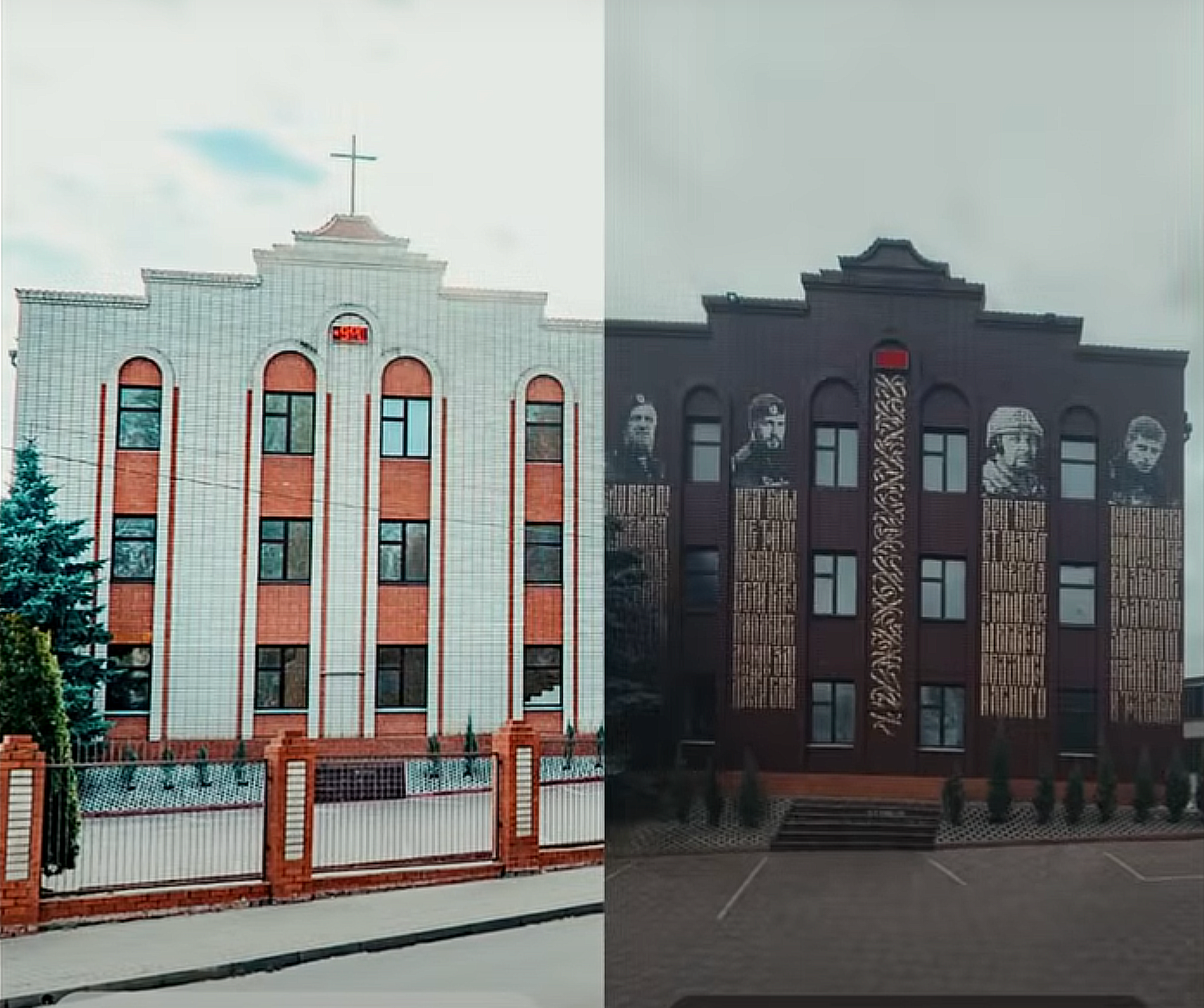 Photo: Screenshot from the film
Photo: Screenshot from the filmAs the journalists discovered, Oleksandr Danyluk was the head of the internal policy department of the occupation administration. At one point, while living in temporarily occupied Crimea, he held administrative positions and openly supported the pro-Russian side. After the full-scale invasion, Danyluk moved to Melitopol.
Andrii Zinchenko works in the same unit as Danyluk. He also opposed various religious organisations in the 2000s. Zinchenko once managed the “Dialogue” centre, which purportedly saved people from the influence of “Protestant churches.” There is a likelihood that he has long collaborated with the Ukrainian Orthodox Church (Moscow Patriarchate).
All these individuals are led by former MP and self-proclaimed Governor Yevhen Balytsky. He signed the order banning all “undesirable” churches, stripping them of all movable and immovable property.
“He is from Melitopol himself, he knows the influence of Melitopol churches, he personally knows the people, pastors, priests, and what they were doing. I think his hatred is precisely because someone tries to live not as he imagines; it simply irritates him. So the anger at these priests, the anger at these pastors, gives him this hatred, it fuels his desire to clear everything away,” Britsyn says in the film.
The Russian occupiers have established their authorities in confiscated church premises: the illegitimate “Ministry of Youth of Zaporizhzhia Oblast”, the “Ministry of Culture”, and the “Ministry of Internal Affairs”.
During the film’s discussion, Britsyn emphasised that after the city’s occupation, people changed significantly. Old friends try to pretend they don’t know you. In his opinion, in such difficult moments, it is important to understand which side you stand on.
“The devil tries to seize every soul. He is occupied with sin. And when a city is occupied by sin, everyone decides which side they are on. Do you want to stand on the side of good? Do you want to stand for truth? Or hide somewhere, evade, betray, etc. Those who are dying today and defending the country are not fools, but heroes who stand on the side of good. If you want to stand on the side of good, you will have to make a difficult choice today, because trenches exist in everyone’s life. Truth makes a person free, and thus victorious,” the pastor said.
According to Olha Rudenko, Editor-in-Chief of The Kyiv Independent, the film aims not only to document facts but also to draw the attention of the Western audience to this issue. It can be particularly important for American society, where religious freedom is of paramount importance. The persecution of Protestant communities in the 21st century in Europe is a powerful signal that human rights violations in the occupied territories require an international response.
Broader Context of Religious Persecution in Ukraine
Russia’s full-scale invasion of Ukraine has significantly worsened the situation for churches and other religious communities. In the occupied territories, almost all religious communities have faced repression, some of which the Russian authorities had used for years within their own country.
One factor contributing to the worsening situation for churches and other religious communities is the ongoing daily shelling by Russian forces. According to the Institute for Religious Freedom, over 21 months of the full-scale invasion, Russians have completely destroyed or damaged at least 630 religious sites in Ukraine.
Additionally, some religious buildings have been looted by Russian forces, or closed or repurposed as administrative buildings by the occupation authorities. The seizure of religious buildings by the Russian army and their use as military bases or to cover firing positions leads to even greater destruction.
The largest number of churches, prayer houses, synagogues, and mosques destroyed by the Russians are in:
- the Donetsk Oblast (at least 146 objects);
- the Luhansk Oblast (at least 83);
- the Kherson Oblast (at least 78);
- the Kyiv Oblast (73);
- the Kharkiv Oblast (at least 62);
- the Zaporizhzhia Oblast (at least 51);
- the Mykolaiv Oblast (at least 41).
By denomination, Orthodox churches have suffered the most from Russian aggression (at least 246), with the majority of them (187) being churches of the Ukrainian Orthodox Church (Moscow Patriarchate). Researchers also highlight the significant scale of destruction of Evangelical church prayer houses – at least 206 in total. In addition, 32 religious buildings have been seized by Russian forces or the occupation authorities.
In the occupied territories, churches found themselves alone with Russian forces. Initially, researchers note, Russians paid them little attention, not considering them independent and influential actors of civil society. However, soon priests and pastors began to face baseless accusations.
Accusations included cooperation with the Security Service of Ukraine, storage of weapons, transportation of explosives, and calls for armed rebellion against the occupation authorities. At least several priests who had canonical ties with the Moscow Patriarchate experienced threats, attacks, unlawful arrests, and torture for maintaining their Ukrainian identity.
Earlier, ZMINA reported that as of January 2025, 67 clergy members of various Ukrainian churches and religious organisations have died at the hands of Russian occupiers since the start of the full-scale invasion.

